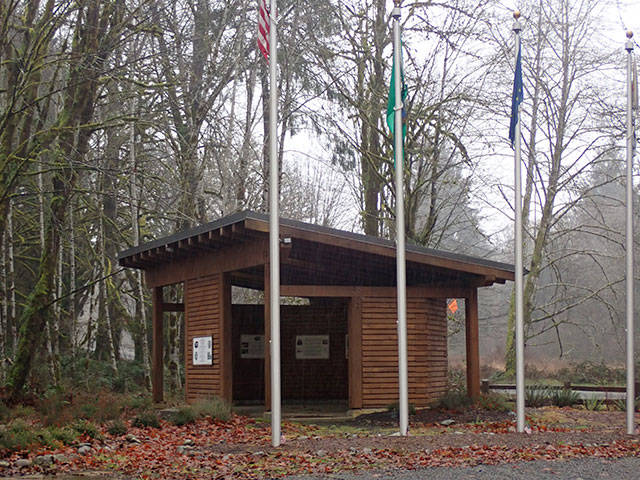IT WAS A dark and stormy night. Inside the cabin, the wood stove glowed red with venison stew simmering, fresh baked biscuits and a whistling tea pot. Outside, the rain fell sideways, causing questions to be asked. What would happen to a person lost on such a night?
You’d have to be tough, resourceful and lucky to survive. Like the party of Russians and Aleuts stranded on the Hoh River in the winter of 1809. They had sailed south from New Archangel, the capitol of Russian America, Sitka, Alaska today. They were looking for land for an agricultural colony. Their ship, the Sv. Nikolai, having broken its foreyard and lost two anchors, could not stop or steer. She was drifting toward the rugged coast just north of the Quileute village at La Push.
The Nikolai washed up on the beach, where the survivors salvaged supplies, made a shelter with the sails and prepared to meet the locals. The Quileute were a warlike people who were accustomed to being attacked by invaders from the sea. They were often forced to seek refuge on their fortress Akalat, called James Island today.
The 22 survivors of the Nikolai crossed the Quileute River in the ship’s skiff and headed south for the Columbia River, where they hoped to meet another Russian ship. After a two-day running battle with the Quileute, the party reached the Hoh River, where they tried to arrange a crossing with the Hoh people.
While crossing the Hoh, the Captain’s wife, Anna Petrovna Bulygin, along with two men and two Aleut women, were captured. One man, shot in the stomach with an arrow, begged to be left to die. He was.
The survivors headed upriver through a hail of arrows in a state of terror, soaking wet misery and near starvation. They ate tree fungus, the walrus-hide soles of their shoes, their rain coats made of sea lion gut and the sea lion hide covers for their firearms.
They hunted for mushrooms but could not find enough to feed the party. They pillaged the Hoh people’s camps. They traded with and threatened others using kidnapping and guile for dried salmon and sealskin bags of fish eggs. Eventually, the Russians stopped to build a stockade and two dugout canoes with their single remaining ax.
Meanwhile, the expedition leader, navigator Nikolai Isaakovich Bulygin, went mad with grief over the loss of his beloved wife, Anna Petrovna. He relinquished his authority to his second in command, Timofei Osipovich Tarakanov, a hunter for the Russian American Company.
Tarakanov intended to head up the Hoh then head south to the Columbia river, a route that would be considered insanely difficult by anyone who knows the country. Instead, navigator Bulygin resumed command and headed the expedition back down the Hoh river to rescue his wife.
At a parley, Anna Petrovna advised the expedition to surrender, saying she had been treated well with kindness. That the chief, Yutramaki, who in fact was instrumental in the rescue of John Jewitt an English sailor who had been captured on Nootka Sound in 1805, would send them to the two European ships then sailing the Strait of Juan de Fuca.
At this, Bulygin tried to shoot his wife but was restrained. Eventually the rest of the expedition was captured and scattered from the Columbia River to Cape Flattery, where, in 1810, the American ship Lydia under Captain Brown rescued 13 survivors. All of which goes a long way to explain why we are not speaking Russian to this day, for which we should be grateful to the Native People of the Olympic Peninsula.
_________
Pat Neal is a Hoh River fishing and rafting guide and “wilderness gossip columnist” whose column appears here every Wednesday.
He can be reached at 360-683-9867 or by email via patnealwild life@gmail.com.

